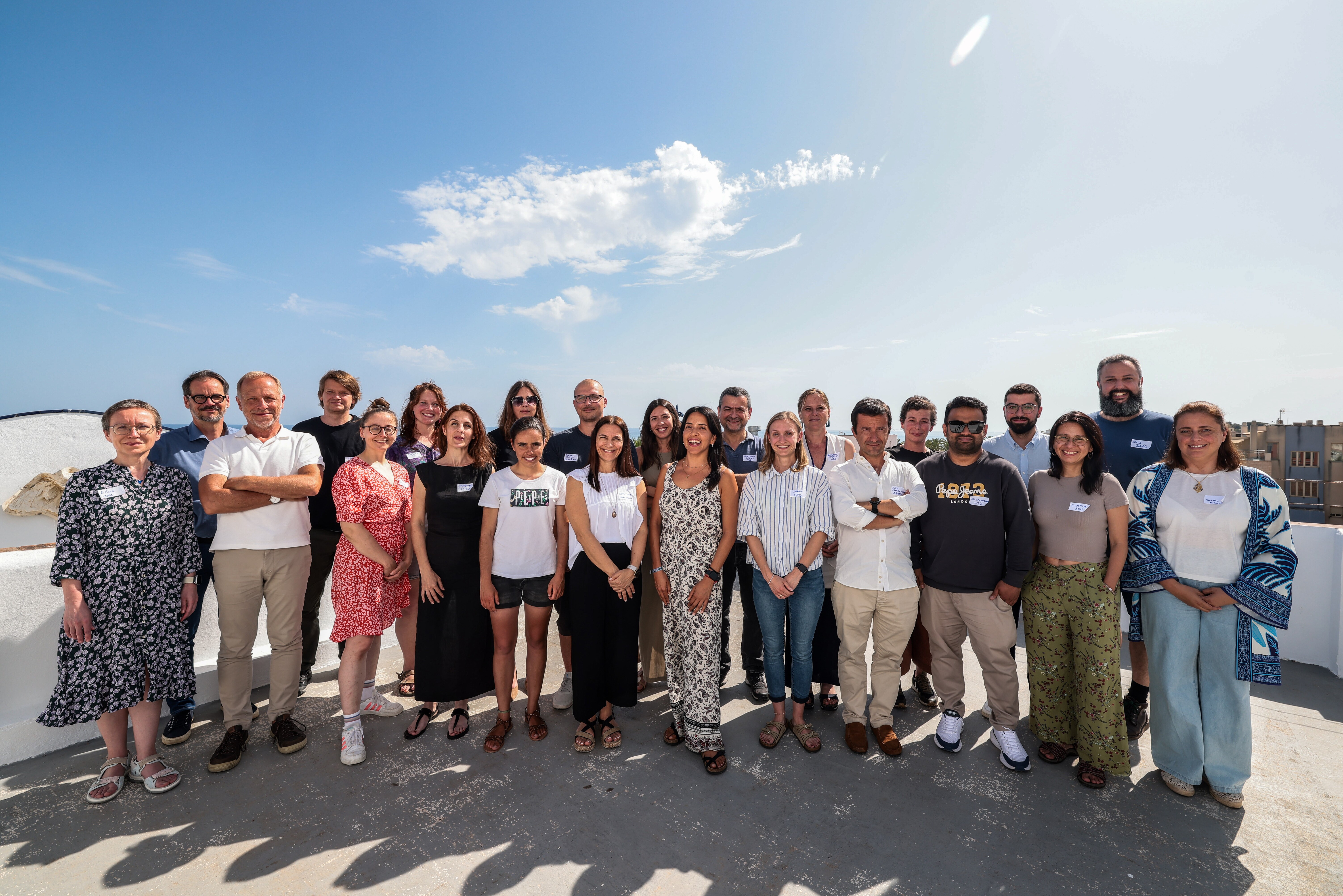
Portugal at the forefront of a European project aiming to “listen,” “see,” and protect the “invisible” ocean
Lisbon, 30 June 2025 – Five Portuguese institutions – MARE – Marine and Environmental Sciences Centre through ARDITI (Regional Agency for the Development of Research, Technology and Innovation) and the University of Madeira, the EurOcean Foundation, and WWF Portugal – are part of a European consortium of excellence launching the SEAMPHONI project, an ambitious initiative that combines science, technology, and art to protect remote and little-explored marine ecosystems. Funded by the European Union through the HORIZON EUROPE programme.
The project focuses on developing an “intelligent digital twin” of the ocean, integrating acoustic, imaging, and environmental DNA (eDNA) data collected in real time. The ambition is clear: to make visible and understandable marine areas often overlooked because they are beyond territorial waters and therefore less protected, proposing new ways of “listening to, seeing, and understanding the invisible ocean.”
From Madeira, the MARE – Marine and Environmental Sciences Centre team, through ARDITI, leads innovative biodiversity monitoring techniques across the six demonstration areas: Iceland, Spanish and Turkey Mediterranean, la Reunion, Madeira island and Wadden Sea. “We will test technological solutions that allow us to access, with greater precision and, in some cases, lower costs, ocean zones that until now were practically inaccessible. This is a crucial step to better understand and protect these areas, contributing significantly to the global goal of 30% protection by 2030,” explains João Canning-Clode, researcher and head of the MARE/ARDITI team.
The EurOcean Foundation leads SEAMPHONI’s communication and outreach component, with a special focus on coastal communities and public awareness. According to Sandra Sá, Executive Director of EurOcean, “Science needs to be translated into clear and inspiring messages. It is our role to ensure that society understands the value of the most remote ecosystems and the urgency of protecting them.”
Meanwhile, WWF Portugal, in coordination with WWF’s European network, will dedicate itself to turning the project’s results into concrete policy recommendations. “We are working to ensure that offshore areas are no longer forgotten in political decisions. The global goal of protecting 30% of the ocean by 2030 will only be achieved if these regions are included as well,” says Ana Henriques, WWF Portugal’s Ocean and Fisheries Officer.
According to Michel André, Director of the Laboratory of Applied Bioacoustics (LAB) at the Polytechnic University of Catalonia (UPC) and project coordinator: “As our oceans face increasing pressures from human activity, SEAMPHONI is pioneering a new approach to marine conservation. By integrating cutting-edge monitoring solutions, we are developing cost-efficient tools that will revolutionise how we assess biodiversity, ecosystem health, and the effectiveness of protection and restoration measures. We are building inclusive and scalable systems to ensure that no part of the ocean remains invisible or unknown.”
SEAMPHONI also aims to support international marine protection policies and bring society closer to the ocean again.
For media enquiries, please contact:
João Canning-Clode | MARE-Madeira (ARDITI) | jcanning-clode@mare.arditi.pt | +351 969 252 934
Sara Granchinho | EurOcean Foundation | sara.granchinho@eurocean.org | +351 968 060 151
Ana Aresta | Communications Officer | WWF Portugal | aaresta@wwf.pt | +351 914 485 627
Brief description of the organisations:
MARE-Madeira
MARE-Madeira is the Regional Research Unit of MARE – Marine and Environmental Sciences Centre in the Madeira archipelago, integrated within the University of Madeira and the Regional Agency for the Development of Research, Technology and Innovation (ARDITI). As part of a multi-institutional R&D centre with a national presence, MARE-Madeira’s mission is to contribute to scientific excellence in aquatic ecosystems through interdisciplinary research, education, technology transfer, and open science.
EurOcean
The EurOcean Foundation is an independent, non-profit scientific organisation whose mission is to support the advancement of marine science and technology in Europe by promoting the exchange of information, interaction, and innovation among its members, the ocean community, and society at large. Founded in 2002 through a collaboration between Portugal’s Foundation for Science and Technology (FCT) and the French Research Institute for Exploitation of the Sea (IFREMER), EurOcean brings together a European network of 19 organisations dedicated to ocean science and technology.
WWF Portugal
WWF is one of the largest and most respected independent conservation organisations in the world, with over 5 million supporters and an active global network in more than 100 countries. WWF’s mission is to halt the degradation of nature and build a future in which people live in harmony with the natural world, by conserving the world’s biological diversity and ensuring that the use of renewable natural resources is sustainable. WWF has been present in Portugal since the 1990s, evolving its work over the years. Today, the NGO has around 30 active projects in the country. wwf.pt

